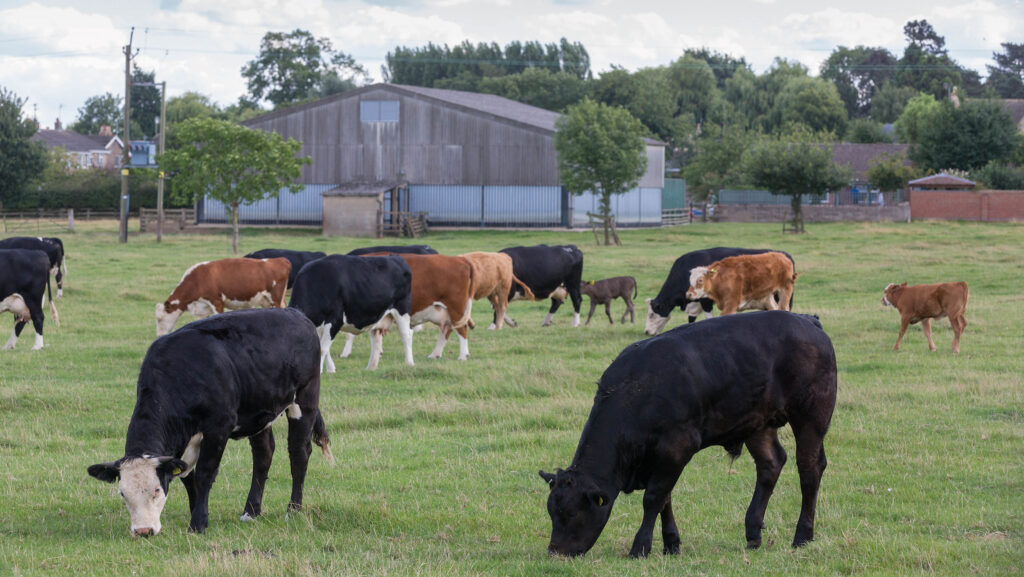Eyes on autumn cattle supply as £5/kg hit again
 © Tim Scrivener
© Tim Scrivener Some finishers held onto cattle last week in a “what’s not sold today will be worth more tomorrow” mentality, as deadweight beef prices lifted 4-6p/kg.
Processors are sourcing cattle particularly eagerly.
This, combined with harvest taking priority on many farms, has made cattle scarcer, say trade sources.
See also: Fat cattle in short supply as prices lift back above 480p/kg
Large loads of well-finished cattle in specification are achieving upwards of 505p/kg.
And many commercial contracts are offering 495p/kg or more.
Expectations are for cattle numbers to tighten further into autumn.
This is due to a 51,000-head contraction in calf registrations for the six-month period between April and September 2023.
Alex Norval, Farmstock’s assistant procurement manager, said: “Prices are on the up and supply is tightening.
“There is no reason for the beef price to fall over the next few weeks, although later into autumn as grazing cattle are offloaded that typically pressures the price.”
Stuart Vile of Meadow Quality said some businesses were failing to make a higher margin, despite high beef prices.
There were issues with cash and confidence, he added.
Bullish (positive factors)
- US consumers are paying record prices for beef of £13.77/kg on average, compared with the Covid high of £12.67 and £5.08/kg back in 2000.
- Methane remains at the forefront of sustainability issues, and increased regulatory responses to limit cattle numbers may underpin the long-term cattle price.
- Premium Angus product is in demand, which is very positive considering challenging consumer economics.
- UK exports are up 9.9% on the first half of the year to 153,564t.
Bearish (negative factors)
- Over 6,000t more Irish beef has been imported this year, according to figures from January to June. Analysts say this is likely to continue as Irish beef prices are below the EU average price for the first time this year and started August 59p/kg below the UK average of 485p/kg.
- Prices are more stagnant in Brazil, New Zealand, Australia and Uruguay due to steady to stronger cattle supplies outpacing domestic demand.
- UK import figures from non-EU nations are up 17.3% for the first half of the year. Tonnage from Australia is up 5.6-fold to 2,078t and New Zealand consignments have more than trebled to 2,048t.
